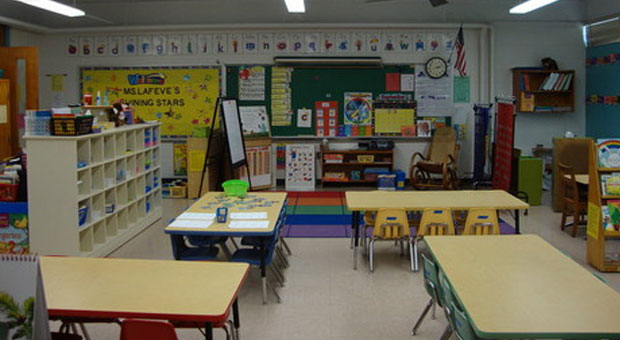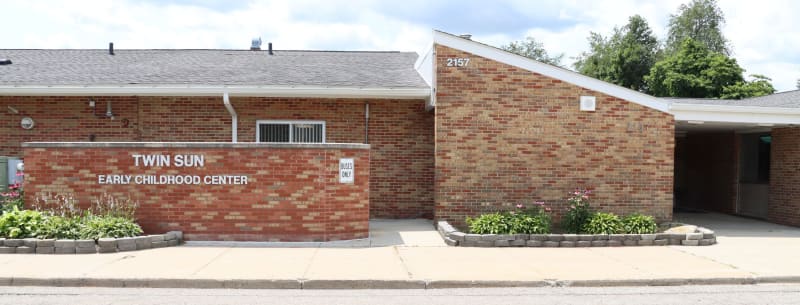As the federal government shutdown drags on, a majority of students in Head Start programs in Oakland County will not immediately see a disruption in their classrooms.
Head Start is a federally funded program that provides free early learning and development services to children from low-income families, as well as children with disabilities.
Head Start serves children ages 3 to 5, while Early Head Start serves children from birth to age 3, and often includes support for pregnant women.
The program aims to promote school readiness by supporting children’s growth in early learning, health, and family well-being through services such as parent engagement and family support workshops. Head Start programs are normally run by local organizations, and eligibility is based on family income and household size.
Head Start federal grants operate on a five-year cycle, with the funding dispersed on a staggered schedule throughout the year, meaning programs receive money at different times.
LOCAL IMPACT
The Oakland Livingston Human Service Agency (OLSHA) program covers all of Oakland County except for Southfield which has their own Head Start program.
They have 700 students in 42 classrooms in Pontiac, Hazel Park, Ferndale, Walled Lake, Holly, Madison Heights, Farmington, Berkeley, Lake Orion and Waterford Township.
Susan Harding, chief executive of OLSHA, explained how Head Start funding works for their program.
“Head Start is unique in that we all have different grant start dates and ours was July 1 and it starts over on Jan. 1,” she said. “Others (funding) were halted on their start date on Oct. 1 and others will be halted on Nov. 1.”
According to Harding, their Head Start program will receive half of its 2026 grant funding on Jan. 1 and the other half in late May. For 2026 they will receive a total of $9.1 million for Head Start and $3.6 for Early Head Start.
 The Lake Orion Childhood Center is among the facilities that have their Head Start programs open through Jan. 1.
The Lake Orion Childhood Center is among the facilities that have their Head Start programs open through Jan. 1.
Photo courtesy LOSD
Even though the next funding grant is not scheduled until January, Harding said she is already looking ahead if the shutdown lasts until the end of the year.
“We are thinking through, should it happen to us, what we can and cannot cover and we have made some of those contingency plans already,” said Harding. “By late December we would have to give furlough notices to teachers and let parents know we would be closing temporarily.”
Harding said their program is so large there is no contingency fund that would pay for teachers, staff, school supplies and everything else the federal government covers with their Head Start grant to keep their doors open.
“I know of a few smaller programs that would be able to stay open for a few weeks maybe, but our costs over a two week period for a program of our size is just not realistic to be able to stay open,” she said.
Harding said the OLSHA program will remain open for at least the next eight weeks.
“No family has to worry between now and the Christmas holiday that our classes are going to close related to the federal government shutdown,” said Harding. “We will be operational as things stand now and keep an eye on it and hope this will all be resolved long before we get there.”
Southfield has 16 Early Head Start and 54 Head Start students in their program with four classrooms and two teachers per classroom. They also have two blended classrooms with Head Start and Great Start Readiness students.
The Great Start Readiness Program is Michigan’s free Pre-K program for eligible four-year-olds.
They declined to answer when their next grant money payment was scheduled for and the amount of their last fund payment.
According to HeadStart.gov, the programs employ and contract with 251,000 staff nationwide, and parents of current or former Head Start children made up 24% of staff.
About 112,000 staff members provided child development services to children, including teachers, assistant teachers, home visitors, and family child care providers.
STATE IMPACT
According to Robin Bozek, executive director of the Michigan Head Start Association, Michigan has 48 Head Start/Early Head Start programs supported by $423 million in federal funds.
These programs represent more than 35,000 children and their families, 55 Early Head Start programs, 64 Head Start programs and two migrant and seasonal Early Head Start programs statewide.
 Some classrooms in Michigan on Nov.1 if the shutdown is not resolved by then. Over 2,900 students would be effected.
Some classrooms in Michigan on Nov.1 if the shutdown is not resolved by then. Over 2,900 students would be effected.
Photo courtesy MHS
Bozek said nine programs affecting 2,944 students are scheduled to receive funding on Nov.1, but will not if the federal shutdown continues.
She said losing Head Start funding would have impacts other than simply closing classrooms.
“Many children receive intervention for early development delays and that cannot be put on hold just because we have a federal shutdown,” said Bozek. “Children will also lose critical health care and mental health services.”
The disruption comes on the heels of a shake up earlier this year.
In April, the National Head Start Association regional office Chicago, which oversees programs in six states, was abruptly closed as part of Health Secretary Robert Kennedy’s cuts at the Department of Health and Human Services, which oversees the the agency that administers Head Start.
“That was a particularly damaging move when they shut down that office because they provide support and answers when there are questions or problems and they just closed overnight with no warning,” said Bozek.
She said her staff is working with programs around the state to help with shared resources and provide as much assistance as possible until a resolution is reached in Washington, D.C.
“Our hope is that congress and the president will choose to end this shutdown immediately, that they will restart funding for Head Start programs and pass an appropriation for a cost of living adjustment because Head Start is flat-funded for the next five-year cycle set to begin this year,” said Bozek.
Flat-funding locks in a budgeted amount for the cycle without cost of living or inflation adjustments.
She added, “You are working with families that are already living in poverty, you are dealing with children who might live in foster care or they may be homeless and you have children with autism who are working with trusted teachers and now you are disrupting all of it over something to do with the government. It’s overwhelming to think what that would mean to any one family.”

